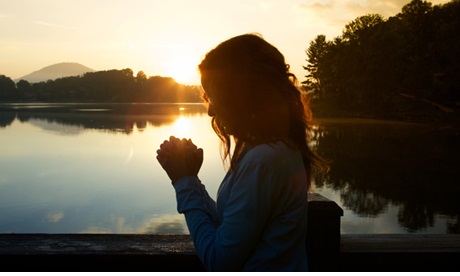After the second time I appeared on CNN, an anonymous Twitter user tweeted at me: “What makes you so qualified to go on there talking about Catholicism?”
The topic I had commented on? Having children.
Me, a Catholic mother, seem imminently qualified to speak on such a thing, but still, this faceless follower without a real name attached to their profile decided to cast doubt upon my qualifications to appear on national news to discuss recent comments the Holy Father had made.
A few months later, when Archbishop Cordileone announced he was barring Nancy Pelosi from receiving communion, I found myself back on CNN, providing insight into the role of a bishop to lead his flock and explaining his decision.
It was after that third appearance, as I was visiting with a producer that I finally gave voice to a private concern wedged deep in my heart: why was I being asked to provide these commentaries?
A normal Catholic
This is not a self-deprecating attempt to receive praise, but I have truly wondered what led me to be a public mouthpiece for Catholicism.
Yes, I studied theology, and yes, I’ve learned decent communication skills over the years.
Still, I’ve quietly wondered why anyone would want to hear from a small-town Catholic mom on major Catholic issues on TV, radio, or otherwise.
As I voiced these questions, attempting to talk myself out of a job, the producer quickly replied: it’s precisely because you’re a small-town Catholic mom with decent communication skills that makes you valuable to us.
“You’re normal, Katie. And normal is what we need to hear.”
That comment, which some might take as an insult but I immediately cataloged as a compliment, has stuck in my head for well over a year.
A world of extremes
“Normal” doesn’t seem like high praise, but in a world of extremes and hot-takes to fuel clicks and garner views, perhaps we need a return to normal.
By definition, “normal” is usual or typical, which does not all seem thrilling or exciting.
But “normal” Catholicism is, in fact, quite thrilling.
Catholicism is already so counter-cultural, so extreme in its practice, so challenging to fully accept and enlightening when believed and shared that to go beyond so one can claim to be an “extremist” is to ultimately harm the Catholic project.
The “more Catholic than the Pope” crowd comes across as extremely arrogant and entrenched in ideals of their own personal creation.
The “progressive ideologies or else” crowd come across as equally extreme, attempting to change centuries of teaching and tradition to simply conform to the times.
And so happiest, and healthiest, and perhaps heard most of all is the “normal” Catholic.
That’s the person who hangs a rosary from their rear-view mirror, goes to a reverent Sunday Mass with a halfway decent homily and room for the choir’s improvement and lives their faith personally and publicly.
At the same time, that person doesn’t feel the need to proclaim hot-takes to gain attention or announce their faith has set them apart from everyone else.
A people set apart
Our Catholicism already sets us apart.
We believe ever ancient, ever new things, hold the Eucharist as our source and summit, tell stories of levitating, bi-locating saints, listen to the advice of an elderly man in a white cassock, and are one of the last institutions with hierarchical patriarchy as a leading premise.
We are, if we’re being quite honest, extreme enough.
So, to proclaim “normal Catholicism” as a virtue is to ultimately say, “I’m going to let the seemingly weird things I already believe be weird enough for me, and try not to out-weird it.”
Not all will agree there is virtue in that project. But I do think it’s catching on.
There is healing, perhaps even holiness, to be found in being a “normal” Catholic, who can sit in a room of people who aren’t Catholic, where everyone knows you are Catholic, respects you for it, maybe even asks you about it, and listens to the answer.
Being a “normal” Catholic, even among those who consider themselves ideologically set in the extremes of the far right and the far left, is a worthy endeavor.
Why? Because then you can be the voice of reason, sanity, and clarity when the extreme opinions become cloudy and confusing.
Being a “normal” Catholic may not make you famous.
It may not land you massive clout, online virality, or seeming influence. But, it just might regularly get you on CNN.
- First published in La Croix
- Katie Prejean McGrady is an author, speaker, and host of The Katie McGrady Show on Sirius XM’s The Catholic Channel and a regular contributor to La Croix International.
